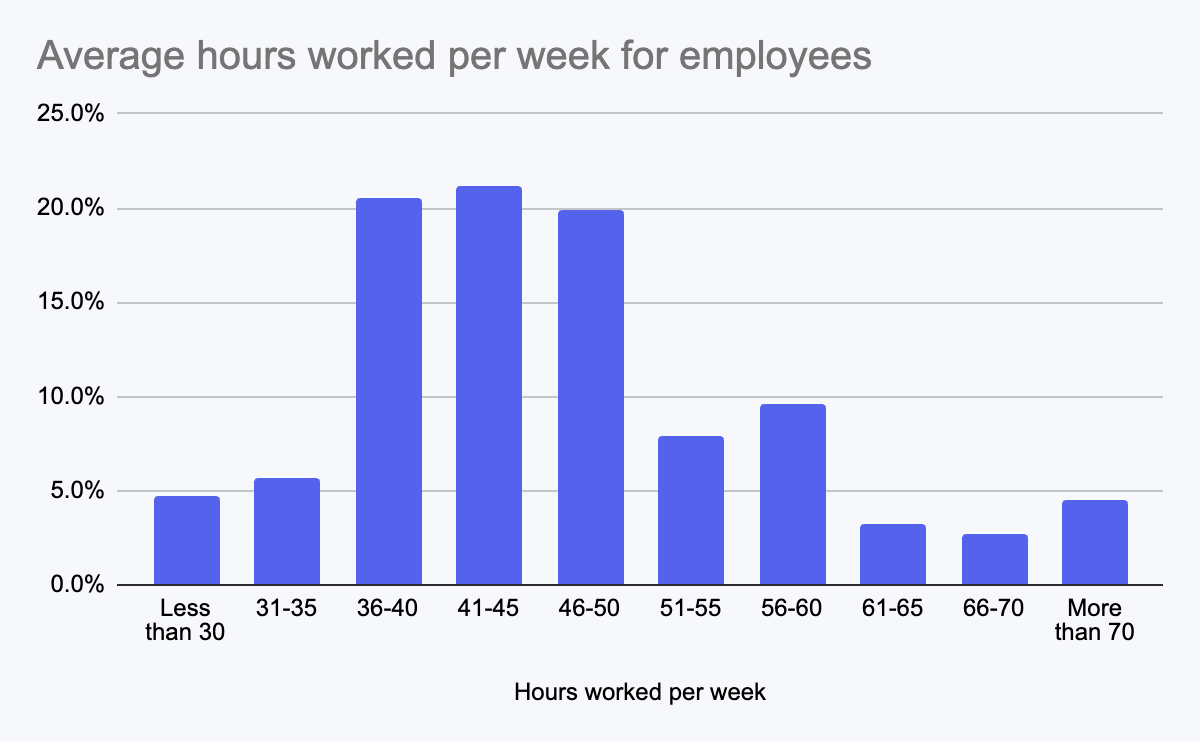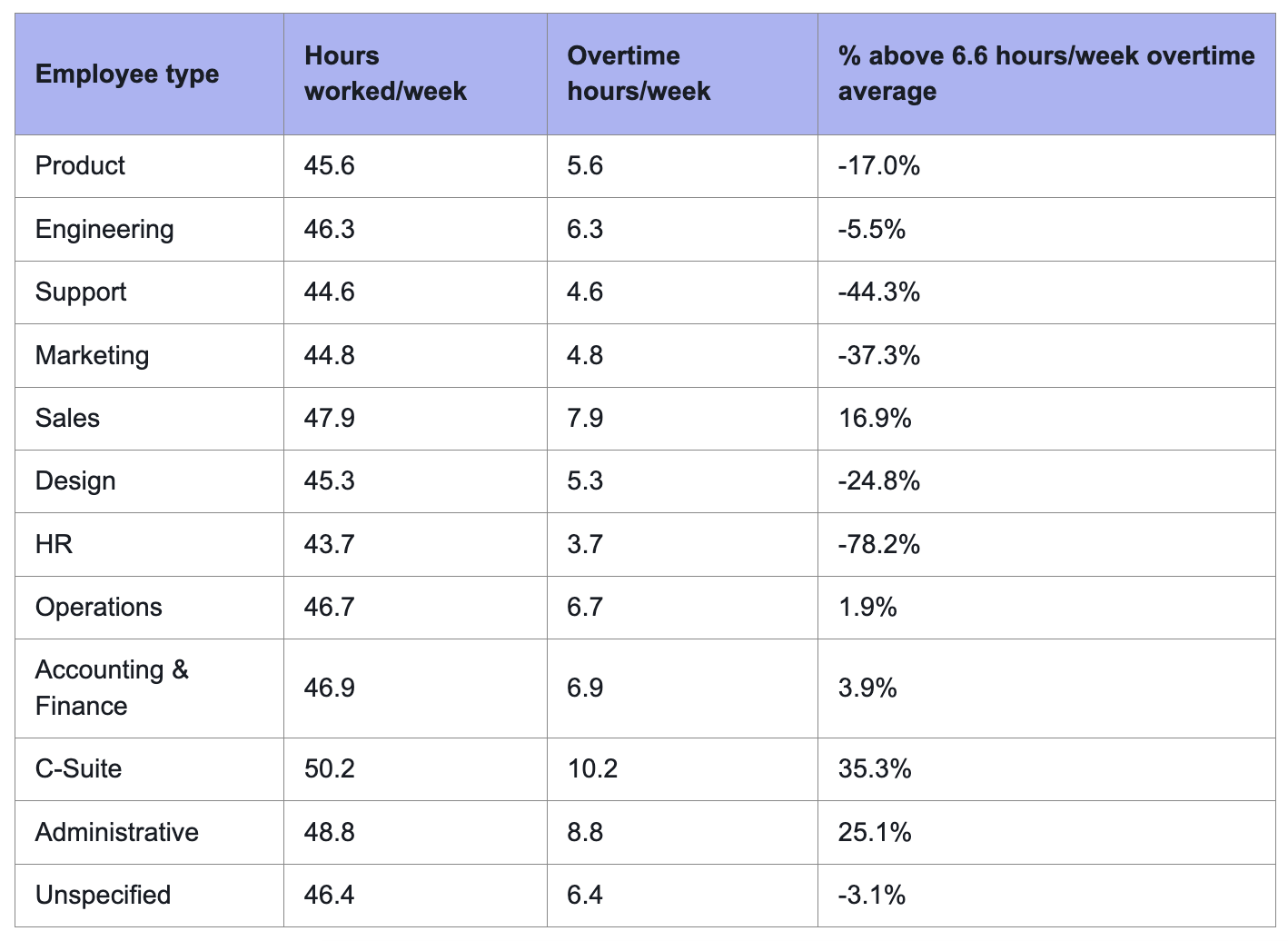
HR leaders get half the amount of focussed work time they say they need each week, and meetings could be to blame

HR departments are averaging 3.7 overtime hours a week, according to a new report, with the extended hours blamed on interruptions during their working day.
The report by Reclaim.ai surveyed more than 10,000 Microsoft Outlook users to determine their current state of productivity, including their working hours.
It found that all team departments are working overtime every week, with the average work week rising to 46.6 hours.

The report found that HR departments are working 43.7 hours a week, which remains longer than the standard, but is the least amount of overtime among all surveyed departments.
The longest overtime hours were recorded in the C-suite department, which averaged 50.2 working hours a week, followed by administrative staff, who averaged 48.8 hours a week.

Despite the extended hours, the report found that productive focus time among employees falls short of their expectations.
It revealed that while employees want 19.6 hours of productive focus time a week, they only get 10.6 hours per week of focus time.
For HR leaders, their ideal hours of focus time weekly are 16.7 hours, but they are only getting 8.3 hours of weekly focus time, a major difference of 50%.
"While HR professionals require the least amount of heads-down time at only 16.7 hours per week, but are only able to complete less than half of that on average," the report read.
The report attributed the low productive time to scheduled meetings, where employees sit through an average of 10.6 meetings weekly.
"They're booked at the easiest time to grab which often leaves our days fragmented with short 30–60-minute openings in-between, which doesn't give people the time they need to get into a productive flow state where they can produce their best work," the report read.
For HR leaders, they attend an average of 11.5 meetings weekly, higher than their ideal 9.1 meetings every week.
The high volume of meetings has long been a problem in workplaces following the implementation of remote work in most firms after the pandemic.
According to the Reclaim.ai report, employees used to average 25.6 meetings a week in 2021. The cost of unnecessary meetings has also been billed at up to $100 million annually for firms with more than 5,000 employees.
"But what's interesting is that meeting volume has consistently been declining since 2021 when the workforce was faced with new challenges around remote working that stemmed from the Covid-19 pandemic," the Reclaim.ai report read.
It found that between 2021 and 2024, meeting volumes declined by 33.2%, and dropped by another 38% between 2024 and 2025.
"Employees are now attending 15 fewer meetings/week, a 58.6% drop since remote work was at its all-time highest in 2021," it read.
Meanwhile, the report also attributed the low productive time to distractions and interruptions throughout the workday, such as emails, chat messages, and in-office pings.
A previous report from Unily recorded that 77% of employees consider notifications from workplace digital tools to be a distraction. In fact, 48% of them said they are distracted by them every 30 minutes.
"While employees can't say no to all of these requests for their time, there's a huge opportunity to reduce these distractions by setting aside dedicated focus time to work without interruption," the Reclaim.ai report said.
"Reserve special catch-up periods at the beginning, middle, and end of their workdays to review and follow up on these requests."
Steve Baxter, CEO of Mandoe Media, previously spoke with HRD to underscore the role of HR leaders in reducing excessive notifications.
"Establish guidelines or tiers of urgency so that employees know which updates require immediate attention versus those that are 'good to know,'" Baxter told HRD. "While some announcements are truly urgent, grouping routine updates into daily or weekly bulletins can reduce 'notification fatigue."